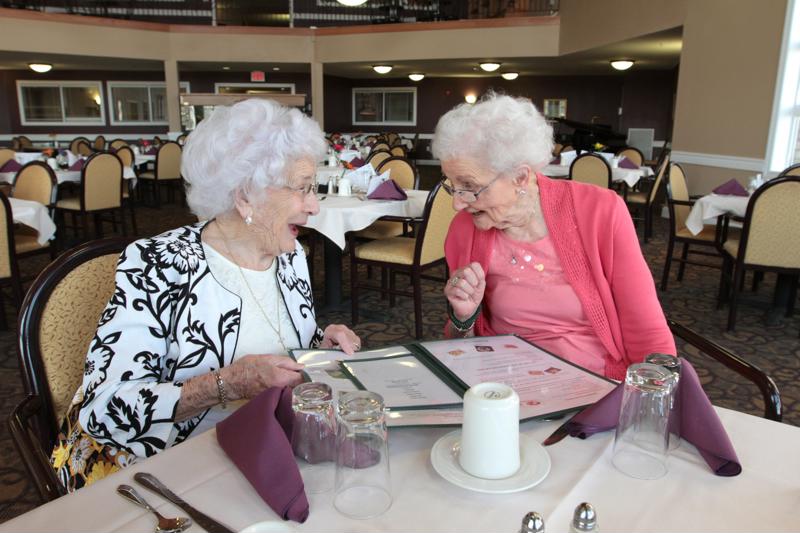
It’s not uncommon for seniors to experience reduced eyesight as they get older. 7.3 million American adults 65 years and older report significant vision loss, according to the American Foundation for the Blind. Living with this condition can be challenging but can be less complicated with loved ones by your side. Here are some ways seniors can cope with a decreasing sense of sight:
Look for the Signs
Family and friends play a large role in helping identify seniors who lose their vision. People may notice their loved ones acting a little differently. According to the Lions Center for the Visually Impaired, signs of a reduced sense of sight can include the following:
- Knocking into things.
- Moving with hesitation or touching walls while walking.
- Uncertain touch of objects
- Squinting the eyes to see.
- They are asking for more or different lighting.
- Holding items close to the face.
- Difficulty recognizing faces and signage.
- Disorientation or confusion in familiar places.
Loved ones who observe these actions may be seeing the beginnings of impaired vision. With early detection, seniors can get the assistance they need to continue safely living their daily lives.
 Adding extra light can help seniors losing their eyesight.
Adding extra light can help seniors losing their eyesight.
Add more Light
Older family members who have trouble seeing will often require extra lighting for even the most basic activities. Reading, writing, and other tasks may be too difficult to complete in areas where seniors once were comfortable. According to the American Optometric Association, adding brighter lightbulbs or increased lighting sources overall can help, especially when placed near spots where people tend to spend the most time.
Understand the Grieving Process
A reduced sense of vision can be difficult to come to terms with. It is a loss, after all. As a result, seniors may feel the following elements of the grieving process, according to Sight Connection:
- Shock and denial.
- Tears.
- Anxiety, sadness, and withdrawal from social situations.
- Dread, in the form of panic.
- Guilt or bitterness.
- State of madness and annoyance.
- Avoidance of normal activities.
- Return of hope.
- Rebuilding.
There’s a natural arc to this development, and it’s important to note the positive aspects that come with it. Vision loss doesn’t have to mean a lack of independence. With a few lifestyle changes and sight aids, seniors experiencing this condition can lead a happy life spent making memories with their loved ones.
Know your Options
There are various stages of vision loss, each affecting loved ones’ lives differently. Depending on the phase of someone’s sense of sight, numerous choices are available regarding visual aids. Family members can ease the transition from adding closed captioning to televisions so they can follow along with their favorite programs to investing in text-reading software and talking watches and clocks, according to the Cleveland Clinic. Talking with a medical professional can help you better understand your loved one’s needs and the best technological advancements to ensure seniors feel less alone.
 Senior living communities offer older people a support system when they’re losing their eyesight.
Senior living communities offer older people a support system when they’re losing their eyesight.
Create a Plan for the Future
A 2014 study from Thomas Jefferson University found that behavior activation therapy was successful in helping seniors experiencing macular degeneration cope with vision loss-related depression. Every person received their own individual strategic coping plan to combat their fears associated with a decreased sense of sight. For example, seniors worried about their socialization skills due to their impaired vision were directed to call friends on a regular basis to schedule a get-together. With this little extra push, older adults with vision loss were able to reduce their risk of depression by 50 percent, according to the study.
Doctors conducting this research hope that the treatment will become more commonplace over time. Occupational therapy, which includes behavior activation, is reimbursable through Medicare—as long as it is approved by a physician.
Losing their sense of eyesight can be troubling to seniors. For many, their vision is tied directly to their independence, and reducing that ability is quite a misfortune. Loved ones can help parents and grandparents dealing with this condition, however. Making adaptations to seniors’ homes or offering an assisted living community that comes with a passionate staff and assistive amenities are smart ways to ensure older people don’t forget their sense of autonomy.




